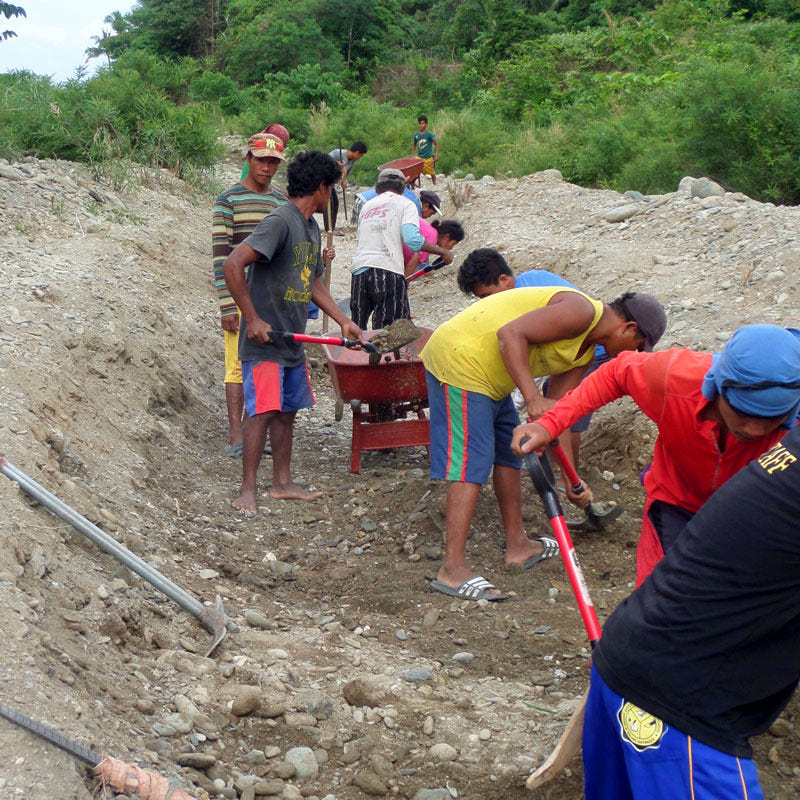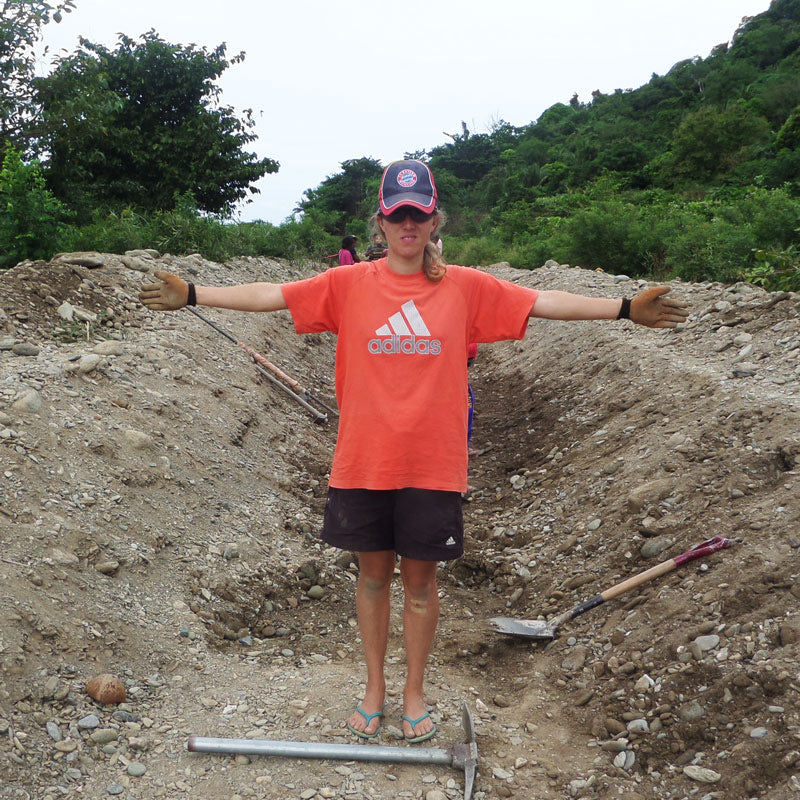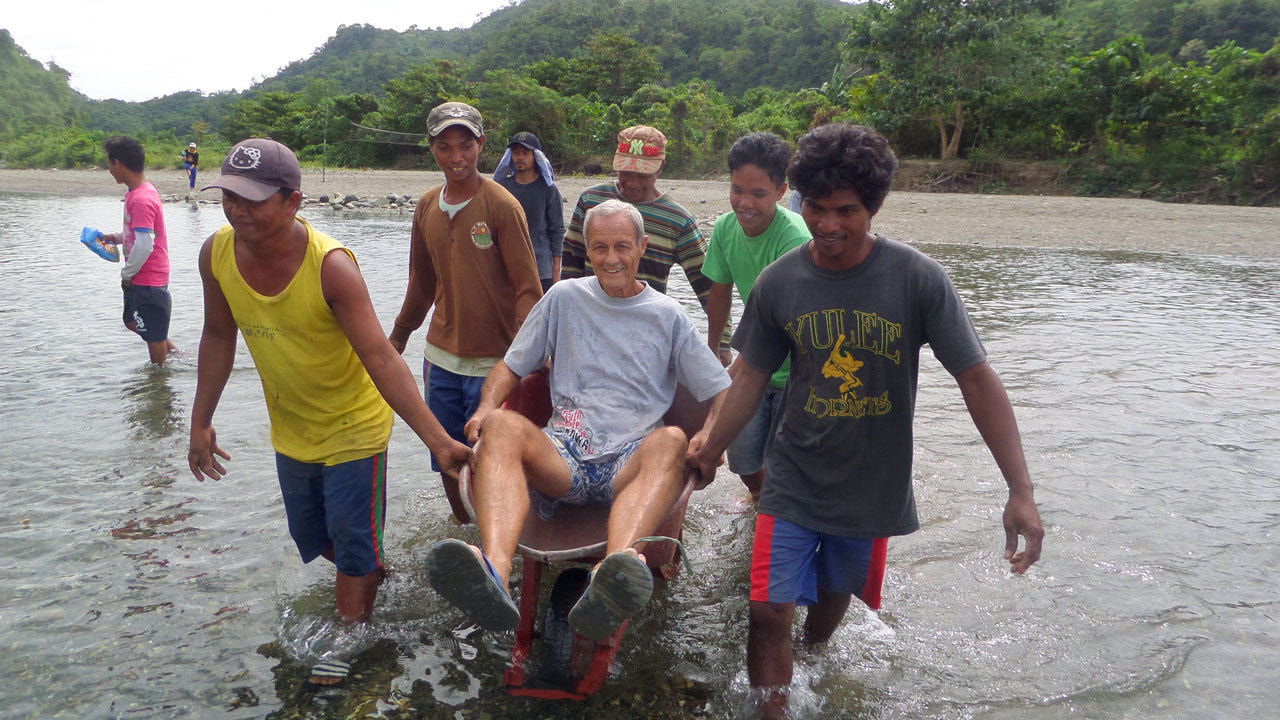In the mission field growth is both a blessing and a challenge. Blessings occur when we are able to share the love of god with someone in need of spiritual or material help. Blessings also occur as we grow in the process of serving our fellowman. In this service environment, we naturally draw closer to those we serve and better understand their reality.
In the mission field, we deal with real people, with real life challenges, in real time. There is no virtual reality here!
These challenges range from physical to emotional to material. The first response is to jump into the “I can handle this!” mode. “This and that is necessary to solve this. Problem solved!” Most of the time this approach is a temporary fix and only prolongs the problem, or even makes it worse.
Through many painful experiences, I have learned the hard way to approach these “growth opportunities” with pre-determined guide lines.
- Have I prayed for wisdom and discernment?
- Do I have all the facts?
- Am I the best one to help solve this challenge, or do I seek help?
- Is my solution enabling a bad habit to continue, or helping someone get on his feet?
These simple guidelines, when followed, have saved many a heartache; when not followed, the result is many heartaches as well as headaches!
For the past 10 days, all the high school students and staff have been living in the remote village of Binuangan. In an attempt to add practical application to the academic and spiritual lessons, we decided to add “manual labor” to our curriculum as counseled in the book “Education“
We loaded our shovels, picks, digging bars and wheelbarrows into the Laymen Ministries Express III and three hours later we were delivered onto the beach of the village of Binuangan. There the adjacent river is eating away at the village’s riverbank endangering our church and school. We immediately went to work digging a channel to redirect the flow of the river away from the village.
Four Laymen Ministries teachers from the village of Pinagbayanan heard of our endeavor and along with 14 older students and parents came and joined us for three days of work. This demonstrated to our high school students how initiative stimulates willingness by others to join in worthwhile efforts.

Digging in a riverbed is hard work! In addition to sand and gravel and roots, large boulders had been washed downstream and buried by the annual floods. In this remote location, mechanical equipment was impossible to bring in. Human hands, sometimes using coconut shells, did all work.
As life here for the indigenous tribe is a daily struggle to find something to eat, planning and participating in a major project to “help the community” is not even part of their thinking.
After five days of physical toil, and a lot of laughs and Christian camaraderie with the teachers who were not accustomed to physical labor, the entrance barrier to the new channel was removed and half the river water was diverted into the new channel.

In five days of working together the team had moved more than 400 cubic meters of rock and gravel to dig a canal four meters wide at the top, two meters wide at the base and average 1 ½ meters deep and 107 meters long.
Next the team, under the direction of civil engineer Susanne Marz, a Student Missionary from Germany, began planting trees and bushes along the riverbank to assist in erosion control.
Unfortunately, I missed the last days of digging and planting. The first days I wore rubber reef shoes. I was quite happy to wear them, but doing so all day long made my feet very soft. Some sand got inside and irritated the skin. Here in the tropics the bacteria and fungi are hyperactive. After three days, in between my toes and the pads of the toes were bloody and like freshly cut meat.

Fortunately, we have here in this village a missionary teacher who received medical missionary training at Wildwood. Marie Victor has been treating me with guava leaf wash, clay and charcoal poultices, plus an ointment for the fungus. Thank god! Healing is taking place. Here again, we experience reality, nothing virtual here!
Having the high school students and staff here in this remote village for 10 days has been beneficial as the cooperation and working side-by-side has bonded us closer. In addition, the students have interacted with the elementary students and their parents; they have observed and participated in classes and also observed a very ineffective village meeting. They know they will later be village leaders and are seeing firsthand their future challenges in real time.
Jesus has called all Christians to be his ambassadors and to represent him now in real time!
Thank you prayer partners and donors for giving us the possibility and privilege of preparing these native youth for service to their own people.
We appreciate you and pray that you are also working now in your local vineyard of our master!